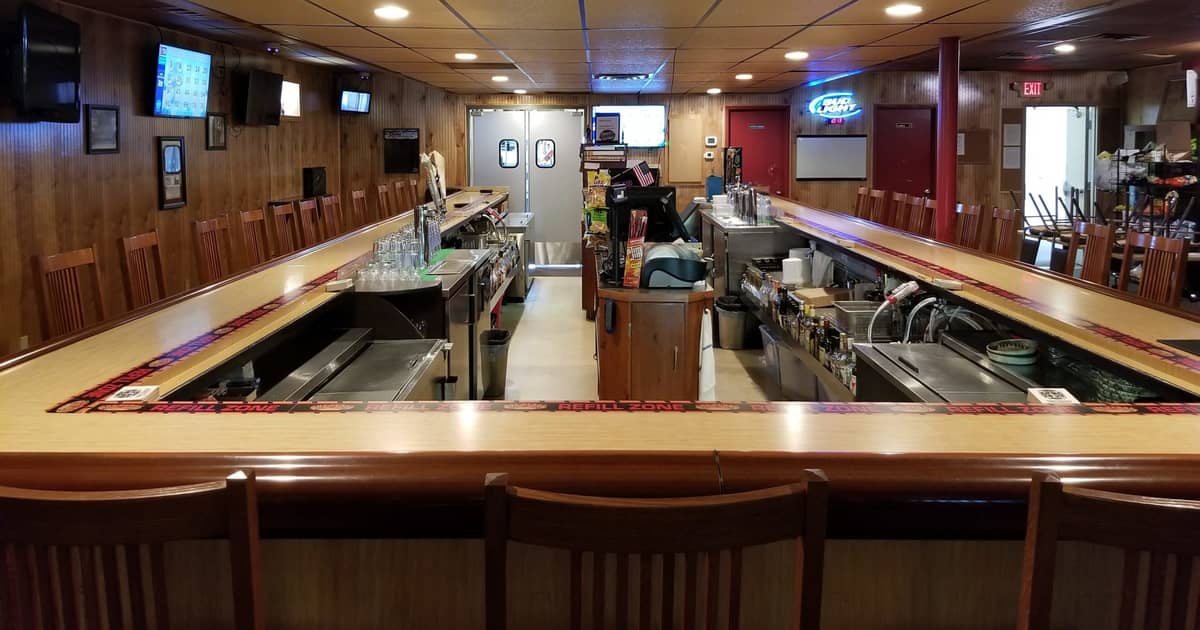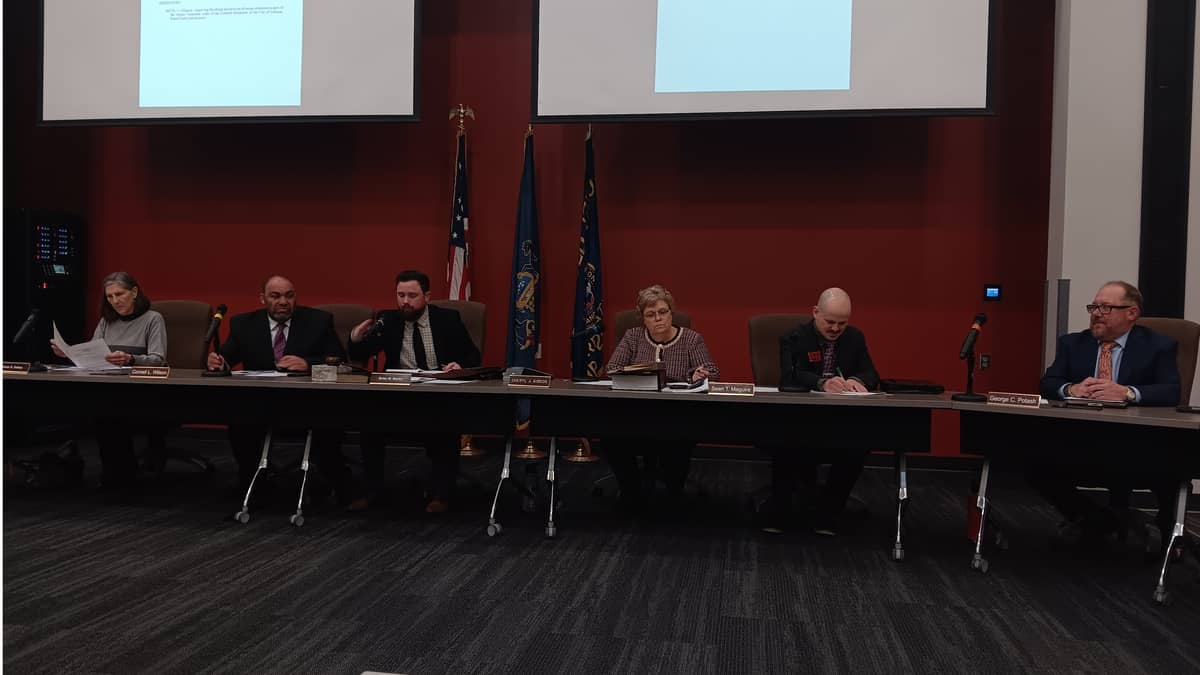As the manager of The Perse social club in Jonestown, Adam Harmon is unhappy with the cocktails-to-go law.
The new law allows restaurants and hotels, but not social clubs, to serve cocktails-to-go until establishments can seat at 60 percent capacity.
While profits at restaurants and bars go into the pockets of their respective owners, revenue generated at social clubs like The Perse at the Perseverance Fire Company funds vital community services.
The Perse projects that its revenue, which accounts for 90 percent of the volunteer fire company’s annual budget, has taken a hit of nearly $145,000 since the club was forced to close on March 17. The lost revenue not only impacts the club’s finances but other charitable community organizations supported by the social club’s profits.
“Clearly without the club, there is no fire company — that’s how important it is,” Harmon said. “And that’s across the state, too. These fire companies’ social clubs have a purpose and that’s to alleviate the tax base. Ninety percent of [Pennsylvania’s] fire companies are volunteer, so without these social clubs, their fire companies would all be on the tax base.”
Being omitted from the new law has frustrated Harmon, who has been the club’s steward for approximately 15 years, and left him feeling perplexed.
“What’s frustrating about all of this is that we’re fighting to make money to give it away to help the state and it is the state that is holding us back,” Harmon said. “We’re here to serve the community and the fact that we have to fight to have the right to make money to give it away to help the commonwealth out at the end of the day is absurd to me.”
In an email response to questions sent to the sponsor of House Bill 327, state Rep. Perry Warren, D-Bucks, said he added an emergency provision to the bill to allow establishments to sell cocktails-to-go. HB 327 originally clarifies the process for a “dry” town to conduct a municipal liquor referendum.
“In April 2020, there were several amendments related to the COVID-19 emergency proposed to be added to the bill,” Warren wrote. “Through negotiations among the House and Senate Republican and Democratic caucuses, and I believe with input from the PLCB and the Governor’s administration, the amendment that emerged was authored by and introduced by Rep. Kurt Masser [R-Northumberland].”
Warren continued by writing, “As the sponsor of the original bill I supported the amendment and encouraged the Democratic members to vote for the amendment, and, when the amendment was passed, for the bill. The original language of the bill has the important effect of clarifying the liquor referendum process, and with the amendment offers a needed boost to licensed restaurants and hotels that are selling food for takeout and curbside delivery and have experienced a loss in sales during the crisis and offers another option for their customers.”
The cocktails-to-go provision permits restaurants, bars or hotels that have lost more than 25 percent of average monthly sales during the coronavirus pandemic to serve sealed containers of mixed drinks of up to 64 ounces during certain hours of the day, including Sunday if an establishment’s license includes Sunday sales.
When asked why the language in the bill did not cover all legally licensed establishments, Rep. Warren wrote: “The language of the amendment was negotiated language. The expansion of the types of licensees to be included in the amendment did not come up in any discussion in which I was involved.”
State Sen. David Arnold (R-SD48), who voted to approve HB 327, said he doesn’t know why the legislation didn’t include social clubs but does know why it couldn’t be amended to include them.
“It wasn’t amended because Governor Wolf told us that if the bill were modified in any fashion he wouldn’t sign it and he would veto the entire bill,” Sen. Arnold said in a telephone interview. “…The thought process at this point was, let’s at least try to get help to some people if we can’t get it to the social clubs. We’d loved to have been able to include everybody, but out of concern that the governor was going to veto, which he’s shown a proclivity for vetoing bills this year, we wanted to make sure we at least got some help to some people.”
Read more: State will soon begin dispersing billions in coronavirus relief money
In an email response from the governor’s press office, Lyndsay Kensinger, Gov. Tom Wolf’s Press Secretary, refuted Sen. Arnold’s statement.
“This is not true,” Kensinger wrote. “The governor did not tell members that he would veto the bill if amendments were added to HB 327. Allowing social clubs to sell cocktails-to-go would require action by Sen. Arnold and the rest of the General Assembly.”
A question in an initial email and a follow-up query to the governor’s press office about whether the governor would sign legislation allowing social clubs to sell cocktails-to-go went unanswered. (Rep. Warren said in his response that he would not oppose new legislation to include social clubs and added that he scanned the legislative directory and found no bills on the docket that would allow social clubs to sell cocktails-to-go.)
State Rep. Russ Diamond (R-102) wrote in an email response to questions sent to him that he voted in favor of HB 327 because it “gave our restaurants and taverns a slight advantage in trying to survive Governor Wolf’s shutdown.”
“Not being a member of the Liquor Committee, and with many other bills being worked on by my own committees to rescue various industries, I was not aware of HB 327 until Republicans caucused it when it was on 2nd consideration,” Rep. Diamond said. “By that time, it is too late to file amendments under House rules.”
“I supported the proposed amendment to the referendum clarification bill and encouraged Democratic members to vote to help our struggling restaurants and to allow additional purchase options for our residents,” Rep. Warren wrote. “By supporting the amendment I helped pass the amendment, and by extension my bill with the results that municipalities now can rely on the process set forth in my bill to conduct a liquor referendum and restaurants and hotels can offer an additional product to their customers during the (current) emergency.”
Sen. Arnold noted that House Bill 1048 has been introduced to provide some financial relief to social clubs and veterans organizations caused by the shutdown of their operations. HB 1048, which was introduced by state Rep. Jerry Knowles, R-Berks/Carbon/Schuylkill, would terminate the annual licensing fee of $700 charged to those organizations. The bill has passed the state House unanimously and is in the Senate for consideration.
“It’s not going to make up for this lost revenue by any stretch but it’s at least an effort to help out a little bit,” Arnold said. “It’s a drop in the bucket for the social clubs, I understand that, but our alternatives were we pass the bill as is and some get a benefit out of it or we amend the bill and the governor vetoes the bill, helping no one.”
While grateful for the new legislation that would provide some fiscal relief to social clubs and veteran organizations, Harmon said it falls short of filling the revenue gap created by the COVID-19 shutdown.
“Don’t tell me that come February of next year that we might save $700,” Harmon said. “I mean, most of these clubs probably won’t be here February of next year, and $700 is really nothing,” Harmon said, comparing that slight revenue relief to a mere drop in the bucket to the club’s lost revenue.
Neither local legislator is aware of any current legislation or amendments that would include social clubs as part of the drinks-to-go legislation. Both said, however, that they’d support such an effort.
Diamond additionally addressed the bigger issue of how to properly fund all municipal services.
“Being that the Perse in Jonestown is supportive of a volunteer fire company, Pennsylvania does need to have a serious conversation about how emergency services are provided and funded,” wrote Diamond. “My opinion is that fire, EMS, and police services should all be consolidated under county government with dedicated county funding. That would be a very heavy lift in this Commonwealth, but it would be well worth the effort.”
Read More: How COVID-19 is impacting ambulance services in Lebanon County
Being omitted from the cocktails-to-go legislation was like a double whammy for The Perse, according to Harmon, after the club’s application to receive Payroll Protection Act funding was rejected. That funding would have helped the club’s five full-time and 10 part-time employees.
While many nonprofit organizations were included in the federal legislation, those with a 501(c)(4) designation like The Perse were excluded, Harmon added.
Read more: Local lenders, businesses tap into SBA Paycheck Protection Program loans
“We tried to keep everyone on and keep paying everyone so no one had to go unemployed,” Harmon said about the club’s initial response to the shutdown. “We’re a small community and these people are family and we wanted to do the right thing by them.”
But only being able to sell food has hurt the club financially and led to voluntary staff layoffs.
“Food is the least profitable aspect of our business,” Harmon said. “We offer good food at a reasonable price to get people in to drink and gamble. Since food is our only income right now, we’re not making a whole lot of money after paying people and taking care of our overhead.”
Although cocktails-to-go wouldn’t have covered all of the club’s lost revenue, it wouldn’t have hurt it either – especially since so many club members have been asking if The Perse would be selling its signature vanilla White Russian cocktail under the new law.
“Our take-out customers were coming in as soon as this bill was announced and were like, ‘Oh, can we get White Russians to go? Can we get White Russians to go?’ Harmon said. “And I’ve had to say, ‘No, we were not included in this bill. We are not good enough to sell you our White Russian.”
Short of a legislative miracle or given the governmental greenlight to reopen, Harmon longs for the days when The Perse, which has been in business since 1948, will be packed again like it typically was most Friday nights.
When asked what he expects to happen when the doors finally reopen, Harmon said, “Oh, we’re gonna get slammed. Everybody’s itching. A majority of the people I’ve talked to aren’t all that overly concerned, and everyone’s on the same page. If you are concerned, then stay home but let the rest of us that aren’t back out to go to the bars. The consensus I am getting from my customer base is that as soon as we open, they’ll be here.”
Read all of LebTown’s COVID-19 coverage here.
Is there a story you think LebTown should report? Let our newsroom know using the form below.
Help us provide journalism Lebanon County needs.
If you are thankful for LebTown, consider joining as a member. Members get an inside look at our publishing schedule each week, plus invites to a members-only Facebook group and happy hours.
Learn more and join now here.
Subscribe to our newsletter for updates each weekday at 3 p.m.
Full Disclosure: The campaign of Dave Arnold was an advertiser on LebTown during the special election cycle. LebTown does not make editorial decisions based on advertising relationships and advertisers do not receive special editorial treatment. Learn more about advertising with LebTown here.

























